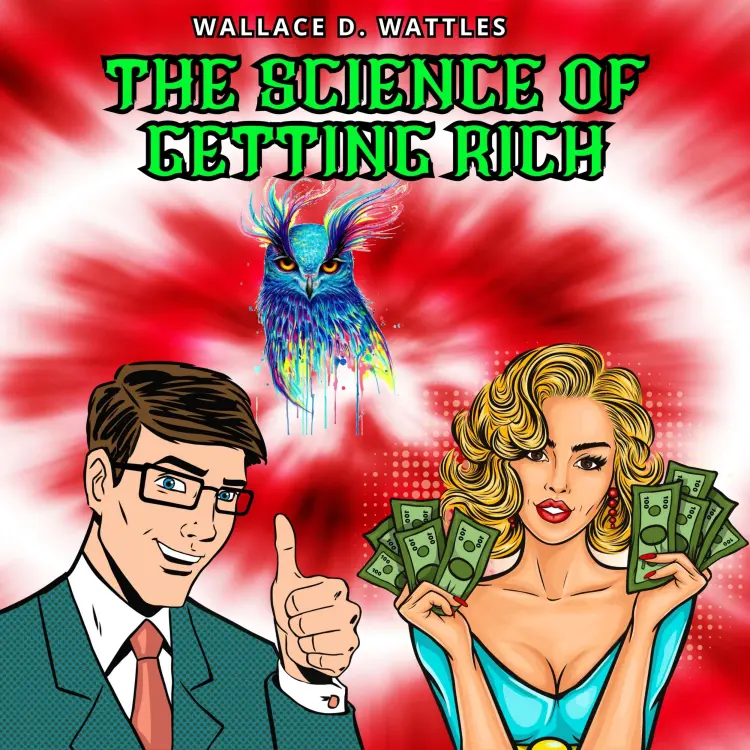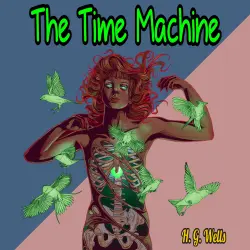
The Science of Getting Rich
Wallace D. Wattles
Unabridged
2 Stunden 6 Minuten
Hinweis: Für das Abspielen der Hörbücher oder Hörspiele können auf den jeweiligen Plattformen, wie z.B. Spotify, Kosten anfallen. Lismio hat keinen Einfluss darauf, welche Hörbücher und Hörspiele bei dem Service verfügbar sind.
Einige Artikel enthalten Affiliate-Links (gekennzeichnet mit einem Sternchen *). Wenn ihr auf diese Links klickt und Produkte kauft, erhalten wir eine kleine Provision, ohne dass für euch zusätzliche Kosten entstehen. Eure Unterstützung hilft, diese Seite am Laufen zu halten und weiterhin nützlichen Content zu erstellen. Danke für eure Unterstützung!
Vom Herausgeber
The Science of Getting Rich by Wallace D. Wattles Audiobook is a book written by the New Thought Movement writer Wallace D. Wattles and published in 1910 by the Elizabeth Towne Company. The book is still in print. According to USA Today, the text is "divided into 17 short, straight-to-the-point chapters that explain how to overcome mental barriers, and how creation, rather than competition, is the hidden key to wealth attraction.
Historical context:
This book is based on the Hindu philosophies that One is All, and that All is One (Page one of Preface). The Science of Getting Rich is based upon what Wattles called "the Certain Way of Thinking." According to Mitch Horowitz, the editor-in-chief of the Jeremy Tarcher imprint of Penguin Books, which reprinted The Science of Getting Rich in 2007, Wattles' "Certain Way" descended from the "mental healing movement" that had started earlier with Phineas P. Quimby in the mid-19th century.
As Horowitz explained to a reporter from the Washington Post, after experiencing relief from physical symptoms of discomfort or illness through Quimby's mental strategies, people began to wonder, "If my state of mind seems to have a positive influence over how I feel physically, what other things can it do? Can it lead to prosperity? Can it lead to happiness in my home? Can it lead to finding love and romance?" One result of such questioning was Wattles's application of Quimbian "mental healing" strategies to financial as well as physiological situations.
Wattles, who had formerly been a Methodist, ran for office as a Socialist candidate in Indiana in 1916. He included the word science in the title, reflecting a secular approach to New Thought though also thereby borrowing from the then widespread popularity of Christian Science and its offshoots as he wrote about business prosperity, mind training, and success in the material world.
Historical context:
This book is based on the Hindu philosophies that One is All, and that All is One (Page one of Preface). The Science of Getting Rich is based upon what Wattles called "the Certain Way of Thinking." According to Mitch Horowitz, the editor-in-chief of the Jeremy Tarcher imprint of Penguin Books, which reprinted The Science of Getting Rich in 2007, Wattles' "Certain Way" descended from the "mental healing movement" that had started earlier with Phineas P. Quimby in the mid-19th century.
As Horowitz explained to a reporter from the Washington Post, after experiencing relief from physical symptoms of discomfort or illness through Quimby's mental strategies, people began to wonder, "If my state of mind seems to have a positive influence over how I feel physically, what other things can it do? Can it lead to prosperity? Can it lead to happiness in my home? Can it lead to finding love and romance?" One result of such questioning was Wattles's application of Quimbian "mental healing" strategies to financial as well as physiological situations.
Wattles, who had formerly been a Methodist, ran for office as a Socialist candidate in Indiana in 1916. He included the word science in the title, reflecting a secular approach to New Thought though also thereby borrowing from the then widespread popularity of Christian Science and its offshoots as he wrote about business prosperity, mind training, and success in the material world.








